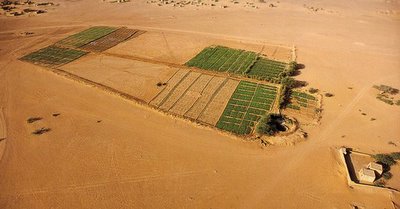Nubian Oasis ( The Sudan )

"The lasting pleasures of contact with the natural world are not reserved for scientists but are available to anyone who will place himself under the influence of Earth, sea and sky, and then amazing life"
- The augmentation of 0,6°C of the earth's average temperature since the early in the last century, affects the biodiversity and set the question about his capacity for adaptation to that quick and violent climat change.
A movie ( cartoon ) which is worth watching at: http://www.exxposeexxon.com/movie/








